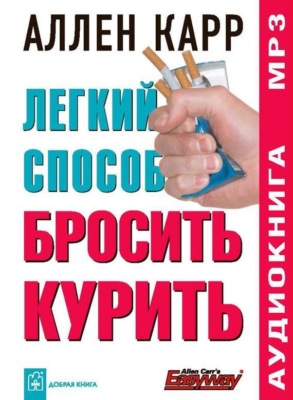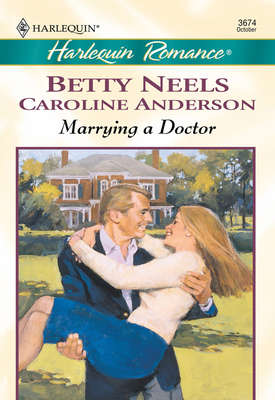Czytaj książkę: «The Silver Thaw»
“My dear Amelia, what are you waffling on about? This is just silly girl’s talk. I thought better of you. You are a sensible young woman.”
She whispered, “I’m not, I’m not, and soon I won’t be young anymore. Oh, Tom, what about children and making a home together and having a dog and a cat and going out for picnics on Sundays…?” He was silent.
She tried just once more. “Tom, won’t you look for a job in England? For my sake?”
He smiled kindly. “Amelia, you know how important my work is to me.”
“More important than I am?”
He considered that carefully. “That’s hard to answer, but if I must be honest—yes, it is.”
Romance readers around the world were sad to note the passing of Betty Neels in June 2001. Her career spanned thirty years, and she continued to write into her ninetieth year. To her millions of fans, Betty epitomized the romance writer, and yet she began writing almost by accident. She had retired from nursing, but her inquiring mind still sought stimulation. Her new career was born when she heard a lady in her local library bemoaning the lack of good romance novels. Betty’s first book, Sister Peters in Amsterdam, was published in 1969, and she eventually completed 134 books. Her novels offer a reassuring warmth that was very much a part of her own personality. She was a wonderful writer, and she will be greatly missed. Her spirit and genuine talent will live on in all her stories.
The Silver Thaw
Betty Neels

CONTENTS
CHAPTER ONE
CHAPTER TWO
CHAPTER THREE
CHAPTER FOUR
CHAPTER FIVE
CHAPTER SIX
CHAPTER SEVEN
CHAPTER EIGHT
CHAPTER NINE
CHAPTER ONE
THE OPERATING THEATRE was quiet; not a peaceful quiet, though. Mr Thomley-Jones was in a bad temper and although he was working with his usual meticulous care and skill, he was making life hard for those in attendance upon him, snapping and snarling his way through a cholescystectomy, two nasty appendices—both pushed in between the other cases because they could have perforated at any moment—and now with a still nastier splenectomy almost completed, he was venting his wrath on the hapless house surgeon who was assisting himself and his registrar. The unfortunate young man, clumsy in any case, became even more so, dropping things, tightening retractors when they should have been loosened, using the wrong scissors and generally making a fine muddle. His chief waited in mounting impatience and a silence which spoke for itself while his assistant cut the ends of gut with which Mr Thomley-Jones was reassembling his patient’s inside and then let out a great roar as the unfortunate young man cut too close so that the stitch was no longer a stitch. The registrar sighed soundlessly and took over, the thunder of his chief’s rage leaving him unmoved.
Just as unmoved was Mr Thomley-Jones’ theatre Sister, who in one swift movement removed the scissors from the hapless surgeon’s hand, gave him a swab to hold, handed more gut to Mr Thomley-Jones, threaded another needle ready for the mattress stitches and swept her gaze round the theatre. The theatre mechanic was standing stolidly by the anaesthetist, her staff nurse was checking swabs, the more senior of the student nurses was looking frightened but doing just as she should, and her companion, fresh in the theatre that very morning, was in tears.
She put the needle and gut into Mr Thomley-Jones’ impatient hand and said in a quelling voice: ‘Sir, you’ve made one of my nurses cry.’
‘Bah!’ exclaimed Mr Thomley-Jones, ‘she shouldn’t be in theatre if she’s got no guts for it.’
Theatre Sister looked at him from a pair of fine dark eyes, heavily lashed. ‘Unlike many of the people who come here, she has got guts, but when you get annoyed you’re rather awesome, sir.’
He glanced at her and although she couldn’t see his face she knew that he was pleased at being called awesome—it sounded godlike.
‘Impertinent young woman, aren’t you, Sister?’
‘I’m sorry if you think so, sir, but I try to look after my nurses.’
He held out a hand for more gut and she inserted it into the needle-holder with great neatness.
‘Oh, you do that all right, teach ’em well, too. You’re a good one at your job, Amelia.’
When he called her by her name she knew that she had been forgiven. They had worked together now for four years and had a proper respect for each other’s job; as the operation drew to its close he mellowed visibly so that the houseman was emboldened to take up the scissors again and the registrar winked at Amelia.
The surgeons went away presently to drink their coffee in her little office down the corridor, and, the patient safely despatched to his ward, the anaesthetist wandered away to join his colleagues, leaving the mechanic to tidy up after him while Amelia collected her nurses and set about the task of clearing away and setting up for the afternoon list. But presently she left Sybil, her staff nurse, and the student nurse and guided her new member of the team into the anaesthetic room where she was at pains to explain to the still tearful girl that Mr Thomley-Jones’ bark was a great deal worse than his bite, that in time she would find that she could continue with her tasks in theatre whatever happened and that she had done very well for her first morning. ‘And just you remember,’ said Amelia soothingly, jumping down from the trolley where she had perched herself, ‘one day you’ll probably be a theatre Sister yourself. It’s a splendid job, you know.’
With which heartening words she took herself off to join the gentlemen; they liked her to be there while they relaxed after a list, to pour their coffee and hand them biscuits and make an attentive audience of one while they chewed over their work. It was a nice job, she mused, going down the corridor, but after four years she was beginning to wonder if she wanted it for much longer; she was twenty-seven now, almost twenty-eight and although she had been engaged for a year to Tom Crouch, the Medical Registrar, he had made it evident that he expected her to go on working for some years after they were married, and as his reasons were sound and sensible she had stifled her disappointment and agreed to stay at St Ansell’s. Tom was clever and doing well and he wanted to do better. He was anxious to make a success of his life and give her the things he considered that she should have; he was quite stubborn about this, and it was a pity, for she was the only daughter of a very comfortably placed village squire, able to provide all the comforts and luxuries Tom wanted her to have as well as helping him up the ladder. It seemed a waste of time to go on working while he saved enough to buy himself into a practice when she could have married him at once and enjoyed all the pleasure of running her own home. She saw his point of view, of course, but sometimes when she was tired at the end of a long day, she wondered if he weren’t being selfish—well, not selfish, just a bit thoughtless…
There was almost no coffee left; she went in search of more, was scolded by the theatre maid and returned to pour second cups and the remainder for herself. She drank it fairly quickly and then excused herself and went back to the theatre, thankful that it was one of the days when only one theatre was in use.
The afternoon list, with Mr Godwin operating, went peacefully. He was a small, good-natured man, not in the least temperamental, and a good surgeon. But he was slow; by five o’clock Amelia was tired and a little cross. Thank heaven, she thought, Tom was free and they would go out to dinner somewhere quiet, and in two days she would go home for her days off. The thought got her through the rest of the afternoon and presently she was curled up on the rather shabby sofa in the Sisters’ sitting room, drinking the teapot dry and contemplating her evening.
Tom had said seven o’clock, and well before that time she climbed the stairs to her room, had a bath and got changed, and because she had the time to spare she took extra trouble with her face and hair. The result was satisfactory even to her critical eye; her hair, a rich deep brown, she had brushed smooth into a chignon, her pretty face, with its delicately tilted nose and wide curved mouth, she had made up with care and her dress, a lacy knit jersey in a lovely rich ochre, although plain and very simple, had the simplicity of good cut and material. It suited her tall well-built figure to perfection and for once she found no reason to moan over her shape, which while it left nothing to be desired, was on the Junoesque side.
She was still a little early, but she put on an angora coat against the September chill and went downstairs.
Tom wasn’t there, but she hadn’t expected him to be. She whiled away ten minutes or so talking to Giles, the Head Porter, and then turned at Tom’s quiet: ‘Sorry to keep you waiting, Amelia.’
She beamed up at him, wishing secretly that old Giles or no, he would kiss her or at least take her hand—after all, they had been engaged for some time now and there was nothing secret about it. She stifled regret and told herself that Tom always did the right thing and whereas she was impulsive and inclined to want her own way, he was invariably correct in his behaviour and deliberate in his decisions. She went out to his well-kept Rover and got in beside him, and he drove, with all due regard for the Rules of the Road, into the stream of evening traffic.
They almost always went to the same restaurant, an Italian one in the Brompton Road, and the head waiter showed them to their usual table with a welcoming smile. As they sat down Tom observed: ‘That’s a new dress, isn’t it, Amelia?’
‘Yes—do you like it?’
‘Very much—I suppose it cost a month’s salary?’ He smiled at her as he spoke, but it was a thin smile, and she sighed a little when she saw it.
‘It was expensive, Tom—I like clothes, most women do, but I’d cheerfully wear the same old thing for years if it would help you—but you won’t be helped…’
‘No. Will you mind after we’re married, not being able to buy anything you take a fancy to?’
She felt surprise. ‘But Tom, you won’t mind me spending my own money, will you? You know I’ve got an allowance, and it isn’t just one Father gives me, you know—it’s from some money my mother left to me. It doesn’t matter what I do, it’ll be paid to me for as long as I live.’
Tom was studying the menu. ‘When we marry, it will be when I can support you fittingly as my wife, my dear—you will have an allowance from me.’
She gave him a bewildered look. ‘But if I’m still working…?’
‘That’s a different matter. We shall both be earning and saving for our future.’
She couldn’t see the difference herself, but she didn’t say any more. It was very likely that being an only child of a loving although somewhat carefree parent, she had been spoilt and indulged and had grown up with all the wrong ideas. She studied the menu and made a mental resolve not to wear a new dress for a long time.
She went home two days later, to the small village in the Cotswolds where she had been born and had spent her childhood. Her mother had been alive then; it was only when she had died that Amelia had been sent away to a well-known girls’ boarding school and when she had left there she had refused point blank to go to the finishing school to which her father had been advised to send her, but had stayed at home, running the rambling old house, riding Sorrel, the elderly mare, learning how to be a good housewife from Bonny the housekeeper who had been there ever since she could remember.
The realisation that she wanted to do something more than these things came slowly and helping to nurse her father through a bad attack of pneumonia decided her. She enrolled as a student nurse at St Ansell’s, passed her exams brilliantly and at the age of twenty-four found herself theatre Sister in charge of the two main theatres in the hospital. She had met Tom a year later and the following year they had got engaged. She had taken him home to meet her father and proudly displayed the solitaire diamond ring he had given her. It was a small diamond but a good one; Tom never bought rubbish.
Her father met her at the station and drove her the several miles home. Amelia had a little car of her own, but she had left it behind on her last leave to have it serviced at the local garage; now she would be able to drive herself back. She sat happily beside her father and looked around her. The country was beautiful, it always was, but autumn was her time of year; she loved the colours and the smell of bonfires and the trees turning from green to gold and brown and red. She was only half listening to her father telling her about the trout he had almost caught, the new fly he had made, the old pike which still evaded even the most beguiling bait—he was an enthusiastic fisherman and ever since her mother died she had accompanied him on several trips. She didn’t like fishing herself, but over the years she had learnt a good deal about it. She turned to look at her parent now, smiling a little. He was a big man, stooping a little now, with a fine head of white hair and a luxurious moustache which didn’t conceal the good looks which she had inherited, although it was her mother’s dark eyes which enhanced them. They twinkled nicely now.
‘You sound thoroughly put out with the fishing, Father—why not try Scotland for a week or two?’
He gave a rich chuckle and swung the old Bentley through the open gate and up the drive to the lovely old house at its end. ‘Better than that, my dear. I thought I might try Norway—old Jenks is just back; had a splendid time—can’t remember the place, but there was more fish than he could take. Why don’t you come with me? We’ll hire a boat and you can see to the food and so on.’
They were crossing the gravel to the house, but she stopped and looked at him with faint horror. ‘But Father, it’s September—the end of September, it’ll be cold…’
‘Pooh, what’s a chilly wind or so? Why not get Tom to come along too?’
‘Tom? Well, yes, he’s got a week’s leave due—but I’ve got three…’
‘Well, he can come for a week, can’t he? It’s only a short flight from Heathrow.’ He stumped across the wide panelled hall. ‘Give you a chance to talk—getting married and so on. Haven’t you got a date fixed yet?’
Bonny, the housekeeper, had appeared to open the drawing room door and tell them that lunch would be half an hour and it looked, if she might be so bold as to say so, as if Miss Amelia needed a few good meals.
Amelia gave her a hug, assured her that she never felt better but would undertake to eat anything she had cooked and went to sit by the wood fire burning in the stone fireplace. When Bonny had gone she said:
‘Tom wants to get a bit more money saved—we thought in about two years’ time, and I’ll go on working.’ She sounded a bit defiant, and her father didn’t say anything for a minute but poured their sherry with care.
‘Well, you’re old enough to know your own minds,’ he said gruffly. ‘Most young people seem to set up house together without a thought of the future, nor for that matter, of getting married—that seems to come later.’
‘Tom isn’t like that.’
Mr Crosbie looked as though he was going to say something, changed his mind and handed her the glass instead. ‘Anyway,’ he said mildly, ‘a week’s holiday can’t interfere with your plans, can it, and I don’t suppose Tom will object to you staying on another couple of weeks with me. He’s a reasonable man.’
Amelia relieved at getting the bit about them not marrying for a bit off her chest, conceded that he wouldn’t mind at all and three weeks would be fun. ‘When were you thinking of going?’ she asked.
‘It’s—let me see—the twentieth today. Could you manage ten days from now?’
She frowned. ‘Yes, I expect so. Mr Thomley Jones is going on holiday, which will cut the lists quite a bit, and Mary Symes, who does the relieving, comes off Women’s Surgical in a week’s time—she could take over. I’ll see what I can do.’
Her father nodded. ‘Good—try and arrange something and fix it with Tom if you can, my dear.’
They lunched together in the rather dark, oakpanelled dining room with Badger, who had been with the family for most of his life, waiting on them in a rather absent-minded fashion. They discussed the coming trip, arguing the advantages of flying to Bergen or taking the car over from Newcastle.
‘We’ll fly,’ decided Mr Crosbie. ‘We can rent a car over there—I’ve the address of someone we can get a boat from and a list of hotels from Jenks.’ He shot Amelia a look. ‘No dressing up, mind you,’ he warned, ‘and take warm clothing. There’s a small place, Stokmarknes, where he says there’s quite a good hotel, and if we want a change there’s Harstad. There’s a road,’ he added laconically.
‘I should hope so—will it be very isolated?’
‘Not where we’re going,’ he reassured her, ‘and we shall be on the Coastal Route, the ships call most days and it’s only an hour or so from one place to the next. If you get bored you can go off for the day, you and Tom.’
It might be a good idea, Amelia thought, to have Tom to herself, miles away from his work and the hospital, and try and get him to change his mind about their future. ‘It sounds super. I’ll talk to him as soon as I get back.’
She spent her two days riding, grooming the two elderly donkeys who kept her own horse and her father’s great skewbald company, pottering about the garden, listening to Job, the old gardener, carrying on about his rheumatism, the apple crop and the incredible size of his pumpkins. And when he told her, with the familiarity of an old and trusted servant, to let him get on with his work, she wandered indoors to the kitchen and sat on the kitchen table while Bonny got the lunch, gobbling up biscuits from the tin Bonny had just filled.
‘You’ll get fat,’ said Bonny.
‘I haven’t gained an ounce in two years,’ Amelia told her happily, ‘I work too hard.’ All the same she got down and crossed to where an old-fashioned mirror hung against a wall and studied what she could see of her person. She wasn’t conceited, but it gave her no misgivings. True, she was a bit too curvy for modern fashion, but she was a big girl and if she had been thinner she would stand in danger of looking like a clothes pole. ‘I won’t eat any more biscuits before lunch,’ she observed, and took an apple from the dish on the kitchen table as she went out.
She saw Tom when she returned to St Ansell’s; he had come into theatre to pass on a report about one of his patients, due for surgery the following day. The list was over and Amelia, in her office dealing with the paper work, looked up smiling as he went in.
He didn’t kiss her, even though there wasn’t anyone around to see; he had pointed out gravely when they had first become engaged that he didn’t mix work with his private life, and they were both on duty, and she had accepted that although she hadn’t agreed with him entirely. He smiled back at her now and asked: ‘Busy?’
‘Not really—just finishing off the bits and pieces. Tom, can you get a week’s leave?’
He was reading up some case notes, but he put them down again to look at her. ‘Yes, I think so—why?’
Amelia explained about the fishing trip and went on: ‘It seemed a good idea—we don’t see all that much of each other: we could have a week’s peace and quiet—we’ll have to see something of father, of course…’
He looked surprised. ‘Well, of course; I don’t know much about fishing, but I’m sure I shall enjoy trying my hand at it, but isn’t it a bit late in the year for that part of the world?’
‘Well, Father doesn’t seem to think so—it’ll be chilly, and dark in the evenings, I suppose, but he says the hotel is quite comfortable. He suggested that we could go off for local trips if we wanted…’
‘Oh, I don’t suppose we’ll want to do that,’ said Tom easily, and didn’t see the little gleam of temper in her eyes. ‘I mean, a week isn’t very long, is it? You can go off sightseeing when you’re on your own.’
She stifled a wish to tell him that she didn’t want to go anywhere on her own, only with him; their times together were nearly always bound by the need to get back on duty and if they went away they would have every day in which to do exactly what they wanted. ‘Yes, of course,’ she agreed quietly.
She went home again on her next days off, this time driving herself in the Mini, to find her father deep in preparations for the trip, his whole interest concentrated on fishing rods, hooks, bait and all the paraphernalia of the dedicated fisherman, so Amelia spent a morning with Badger, packing a case with the right sort of clothes for her father, and then went away to her own room to render herself the same service.
It was a lovely day, clear and blue-skied and sunny, and if it hadn’t been for the leaves all over the lawns and the trees changing their colours she might have supposed it was summer. She went and sat on the window seat and looked out on to the flower beds below, watching Job carefully taking off the dead roses. It was his boast, and no one had disputed it, that he could pick roses until Christmas; he certainly took great care of them. She got up presently and went to her clothes closet and began to look through it; no dressing up, her father had said. She chose two pairs of cord slacks, some thick sweaters and a quilted jacket with a hood and a pair of wellingtons, thick gloves too and a couple of scarves, and then because there might be a tiny chance of wearing something else, she added a pleated skirt and matching bolero and two blouses to go with them and as an afterthought a jersey dress in a warm burgundy. She found a pair of shoes, some tough ankle boots she wore when she went walking, and packed them into her Gucci case, filling in the corners with undies and night clothes and stockings. She would be coming on holiday in a few days, but it seemed a good idea to be packed and ready before then—there wouldn’t be much time. They were to travel on a morning flight to Bergen and she wouldn’t be able to get home before late evening before that. She put the case tidily in the closet and went downstairs to find her father.
She had only four days to do before she went on holiday, but they were busy; Mr Thomley-Jones, due to go the day before her, had suddenly become determined to do twice as many cases as he usually did, which left them all stretched to their limit. Fortunately, the new student nurse, after her first disastrous day, was shaping very well, and Nurse Knollys, who had been off sick for several weeks, was back again. A large, ungainly girl with no looks to speak of, she was utterly dependable in theatre. Amelia, wishing her nurses a cheerful good morning on the last day before her holiday, sighed thankfully that all her staff were there. Sybil could be relied upon to keep them all up to scratch, and Mary Symes would be able to cope—Mr Thomley-Jones wouldn’t be there and the other four surgeons who operated were calm, quiet men who seldom raised their voices…
She went to scrub presently. The morning’s list was a long one and there were a couple of laparotomies, and heaven only knew what Mr Thomley-Jones might find or what he would say if he found anything… She sighed, got into the gown a nurse was offering on the end of the Cheatles and stood while it was tied.
Mr Reeves, the Registrar, was scrubbing too. ‘Going on holiday today?’ he wanted to know. ‘Tom said something about a fishing trip…’
Amelia was putting on her rubber gloves. ‘Yes—he’s only got a week, though. I’ve got three—still, a week’s better than nothing. I’m looking forward to it.’
‘So’s he, I imagine.’ He glanced at her carefully drawing the cuffs of her gloves over the sleeves of her gown. A nice girl and very pretty. Plenty of money too—and a good theatre Sister; he’d never seen her hesitate or falter or lose her temper for that matter, although he fancied that she could do that on occasion. A little cool for his taste, though—no, cool wasn’t quite the word; reserved was better. He wondered if she was like that with Tom Crouch; it seemed to him that the pair of them hardly struck sparks…
Mr Thomley-Jones’ voice, thick with annoyance, cut through his thoughts. ‘Here I am, working my fingers to the bone and nothing ready,’ he said as he entered the scrubbing up room.
It was Amelia who spoke, on her way out to the theatre, ‘Everything is quite ready, sir,’ she said briskly, and, ‘Good morning, sir.’
‘Oh, pooh, you’ve always got an answer, haven’t you? Where’s that fool of a young Phillips?’
‘Your house surgeon is in theatre, sir.’
‘Wretched girl, why are you smiling?’
‘I think it’s relief, sir, because we’re quite ready for you.’
He laughed then and started to scrub. ‘Go away, Amelia—in another minute I shall be in a good temper, and that’ll never do!’
But miraculously, he stayed positively sunny for the entire morning. Even the discovery that the first laparotomy exposed a diverticulitis of magnitude and the second revealed a nasty patch of gangrene which he instantly removed made no difference. The list ran late, of course, and Amelia got no dinner in consequence, but that hardly mattered; there was only the afternoon’s list to get through and Sybil would be relieving her at five o’clock. Amelia gobbled toast and drank mugs of tea in her office and went to scrub up.
The afternoon list wasn’t a long one. They were finished by five o’clock and by half past that hour she had bidden Sybil goodbye, gone to the home for a cup of tea and then up to her room. She was driving herself down that evening, for Tom was still on duty and would meet them at Heathrow in the morning. She had snatched a brief moment with him on the way to the home and they had been able to make last-minute arrangements. She dressed now happily enough. A week in Tom’s company would be lovely and give them a chance to talk; sometimes she wondered uneasily if, even when they were together, they talked about the right things. When they had first become engaged, they had discussed the future pretty thoroughly, but now it was as though having said it all once, there was no need to mention it again. Once or twice she had tried to persuade Tom to get married at once, but although he had been patient and understanding, he had been quite adamant—perhaps being together would help to change his mind.
She got into the sage green tweed Jaeger suit she had bought only a week ago, quite forgetting that she wasn’t going to wear anything new for a while. It had a pleated skirt and was warm enough to travel in with the matching cashmere sweater underneath. She had already filled her handbag with all the things she would require on the journey. She sprayed herself with Miss Dior, pushed her feet into beautifully made brown leather brogues, found her gloves and went down to the corner of the courtyard where the staff kept their cars. It was dark by now and in the headlights the hospital looked grim and very gloomy. Amelia swung the Mini out of the front gates and edged it carefully into the evening traffic.
Bonny had a late supper waiting for her. She ate it from a tray on a small sofa table in the drawing room while her father sat opposite her outlining his plans for the next three weeks. He had got them rooms at the hotel, he told her, arranged for the hire of a boat and had worked out some sort of an itinerary. ‘We might as well see something of the country while we’re there,’ he told her. ‘Not too far,’ he added hastily, ‘the best fishing is in that part, I’m told.’
It all sounded delightful. Presently Amelia went to bed, to sleep soundly until she was roused in the morning by Fred, her father’s labrador, who expected to be taken for a quick walk before breakfast.
They left early with Badger sitting beside Mr Crosbie in front; he would drive the Bentley back home again and come to fetch them on their return. Amelia, sitting in the back, daydreamed gently. It would be perfect weather, of course, even if chilly, and Tom and she would hire a car and explore. She was certain that her father wouldn’t mind at all if he were left to fish on his own; he’d been doing it for years and she suspected that although he tolerated her company he wasn’t quite happy about Tom. They liked each other well enough… She frowned a little and switched her thoughts to the pleasanter one of the future—the wedding, the house they would find together and furnish and should she take Cordon Bleu cooking lessons or would Bonny be able to teach her how to cook? She wondered how much money she would need to housekeep; it was deplorable, but she really didn’t know.
Tom reached Heathrow five minutes after they arrived there themselves; he parked his car, picked up his case and joined them quietly, shaking hands with her father and smiling at her as he held hers briefly. After her daydreaming it seemed rather a let-down.
She didn’t like flying, but it saved time, and as the plane was only half full, she didn’t get the feeling that she was travelling in a rather crowded bus. The weather was good too; England disappeared and with nothing but the sea below to look at she turned to Tom beside her. He was asleep and she smiled gently; probably he’d missed most of the night’s rest and it must have been an almighty rush to get to the airport. She sat back quietly until the stewardess came round with the lunch trays and wakened Tom.
And almost before they had finished their coffee they were coming down over the countless islands round Bergen. The weather wasn’t so good now, grey and great blankets of cloud which enveloped them until they touched down, when Amelia wasn’t surprised to find that it was raining.
Darmowy fragment się skończył.




















